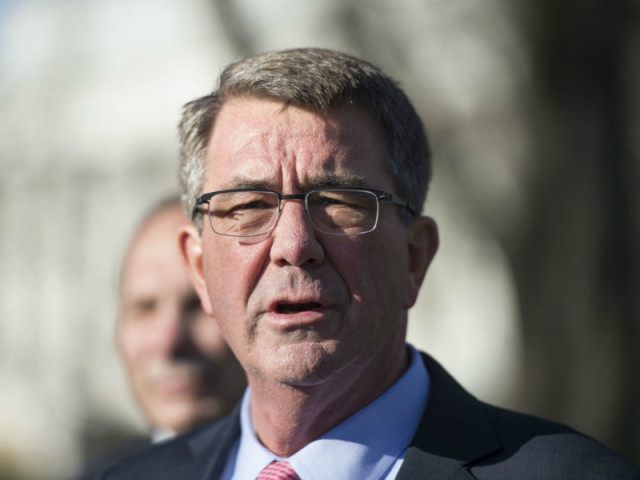Secretary of Defense Ashton Carter will visit a U.S. military site near disputed territory in the South China Sea this week, according to a senior U.S. official that described the visit as “a message to the region about our commitment to peace and stability there.”
Carter is currently in India and will later head to the Philippines to meet military officials, discuss, and observe joint exercises between American and Filipino forces in the region. The United States recently signed an agreement that will allow for joint exercises to be conducted more often in the region, and it gives American forces access to five new military bases in the Philippines. American forces will work to enhance the capabilities of these bases while they are present there, strengthening the military power of the Philippines.
The official speaking to CNN confirmed that Carter will observe exercises taking place near disputed territory in the South China Sea, which Chinese officials contend belongs to them due to unspecified “ancient” claims to the territory. Carter’s presence so close to disputed territory, the official claimed, is “a message to the region about the continued importance we place on the South China Sea as a core American security interest, and it’s about demonstrating to the Philippines our continued ironclad commitment to their security.”
“I hope the Chinese will see this as a demonstration of our commitment to the Philippines and to security and stability in the region. If they chose to take further messages from that, you’ll have to ask them,” the official added.
China claims most of the South China Sea, its territory overlapping with claims by the Philippines, Taiwan, Brunei, Malaysia, and Vietnam. Carter will be visiting the Spratly Islands, claimed in part by both the Philippines and Vietnam in addition to China.
Last year, Carter sailed through the South China Sea on the USS Theodore Roosevelt with his Indonesian counterpart, defense minister Hishammuddin Hussein. The move followed a freedom of navigation exercise by the U.S. Navy in the Spratly Islands, to which China sternly objected.
Chinese media are making clear they are watching Carter’s trip to the region closely. A column in the state-run Global Times notes that Carter has stated he will visit China this year and that he should not be looking to make a statement on the South China Sea by snubbing Beijing on this trip. “China will not waver in its resolution in safeguarding its territory and sovereignty no matter how the outsiders try to pressure it,” the column reads. “The US is not a claimant in the South China Sea disputes. It should respect China’s legitimate rights to construct the Nansha islands and reefs within China’s sovereignty.”
The column also alleges that “the past several months have seen claimants behaving in a relatively restrained way,” which is true save for multiple instances of Chinese ships trespassing into international waters, China usurping more Filipino land in the Spratly Islands, and the Chinese government announcing the official opening of its third surveillance lighthouse in the Spratly Islands.
Meanwhile, the governments of other nations are showing increasing concern with Chinese expansionist actions in the region. Vietnam is demanding the China remove a large oil exploration rig from Vietnamese waters, while the government of Indonesia has threatened to arrest more Chinese sailors should they continued to enter Indonesian territory.
On Monday, the foreign ministers of the G7 nations issued a statement expressing “concern” over China’s behavior. The statement read:
We express our strong opposition to any intimidating, coercive or provocative unilateral actions that could alter the status quo and increase tensions, and urge all states to refrain from such actions as land reclamations, including large scale ones, building out outposts, as well as their use for military purposes and to act in accordance with international law including the principles of freedoms of navigation and overflight.
Chinese Foreign Ministry spokesperson Lu Kang responded to the statement by accusing “some countries” of “fabricating some so-called issues.” “If G7 is hijacked by a particular country for selfish gains, this will do no good to the strength, function and future development of G7 itself,” the statement read.

COMMENTS
Please let us know if you're having issues with commenting.